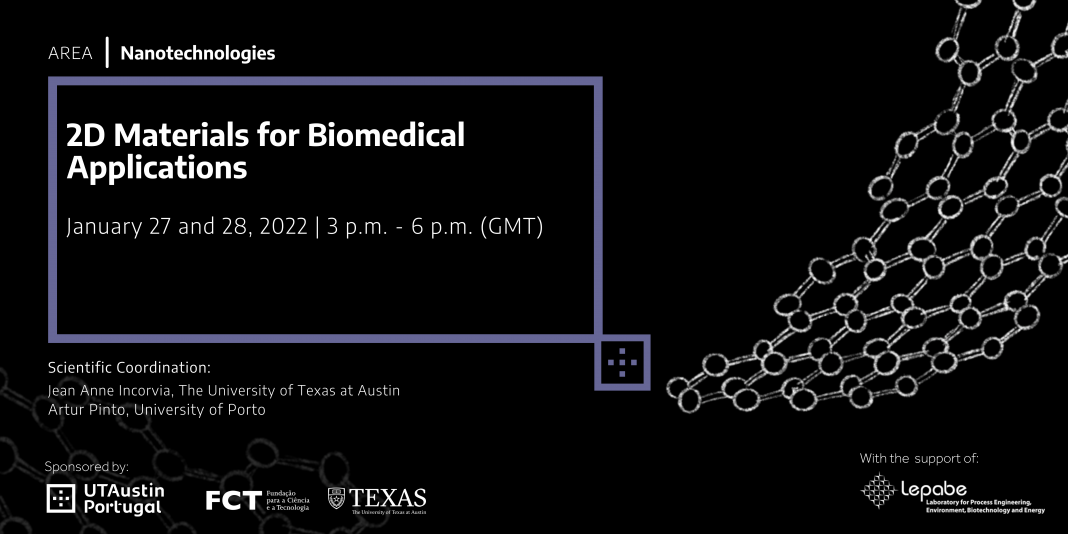Registrations closed
The UT Austin Portugal Program is moving the course 2D Materials for Biomedical Applications into a virtual-only mode.
Under the scientific coordination of Dr. Artur Pinto (*) (LEPABE – Faculty of Engineering of the University of Porto, Portugal) and Professor Jean Anne Incorvia (The University of Texas at Austin, USA), the course has been split into 2 sessions, each 3-hours long, and happening on January 27 and January 28, 2022 (start hour: 3 p.m. (LIS) | 9 a.m. (AUS)).
It will bridge disciplines between Nanotechnologies and Biomedicine, by exploring the large library of 2D materials available today as well as its potential applications in health and medicine.
Who can register?
This training activity is aimed at participants in the areas of medical physics and nanotechnologies, including people in medicine who are interested in new materials for medical technologies, as well as people who work in nanotechnologies, especially in 2D materials, and want to learn their potential applications in medicine.
What should participants expect to learn?
- The library of 2D materials, their different types, and their different functions;
- How 2D materials can be produced, grown and exfoliated;
- How to measure 2D material properties, and what the range of their behavior is;
- How 2D materials are currently used in cancer therapies;
- How new 2D materials could impact cancer therapy and other medical areas.
Agenda:
January 27 |
||
| Time | Session | Speakers |
| 3:00 p.m. (LIS) | 09.00 a.m.(AUS) | Opening Remarks | Prof. Jean Anne Incorvia & Prof. Brian Korgel (UT Austin) |
| 3:10 p.m. (LIS) | 09:10 a.m.(AUS) | Library of 2D Materials | Prof. Jean Anne Incorvia (UT Austin) |
| 3:40 p.m. (LIS) | 09:40 a.m. (AUS) | Graphene-based materials for biomedical applications | Dr. Artur Pinto (LEPABE – FEUP) |
| 4:10 p.m. (LIS) | 10:10 a.m. (AUS) | Graphene tattoos for medical applications | Prof. Deji Akinwande (UT Austin) |
| 4:40 p.m. (LIS) | 10:40 a.m. (AUS) | Conventional and unconventional biosensing with 2D materials | Dr. Dmitry Kireev (UT Austin) |
| 5:10 p.m. (LIS) | 11:10 a.m. (AUS) | Brainstorming panel session: what does medicine need from 2D materials? | Dr. Artur Pinto (LEPABE – FEUP) & Prof. Deji Akinwande (UT Austin) |
| 5:45 p.m. (LIS) | 11:45 a.m. (AUS) | End | |
January 28 |
||
| Time | Session | Speakers |
| 3:00 p.m. (LIS) | 09:00 a.m. (AUS) | Transition Metal Dichalcogenides, their properties, exfoliation, and characterization | Xintong Li (UT Austin) |
| 3:30 p.m. (LIS) | 09:30 a.m. (AUS) | Van der Waals Heterostructures of 2D Materials | Prof. Emanuel Tutuc (UT Austin) |
| 4:00 p.m. (LIS) | 10:00 a.m. (AUS) | Nanomaterials for immunotherapy | Prof. Maria Oliveira (i3S-INEB) & Prof. Susana Santos (i3S-INEB) |
| 4:30 p.m. (LIS) | 10:30 a.m. (AUS) | 2D Silicon and Germanium | Prof. Brian Korgel (UT Austin) |
| 5:00 p.m. (LIS) | 11:00 a.m. (AUS) | Brainstorming session: How can researchers in nanotechnology and medicine work better across disciplines? | Prof. Jean Anne Incorvia (UT Austin) |
| 5:35 p.m. (LIS) | 11:35 a.m. (AUS) | End | |
*LIS stands for Portugal mainland time (GMT) and AUS for Austin time (GMT-6).
if you wish to be put on our waiting list, please send us an e-mail to events@utaustinportugal.org
About the speakers:
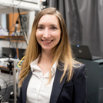 Jean Anne C. Incorvia is an Assistant Professor and holds the Fellow of Advanced Micro Devices (AMD) Chair in Computer Engineering in the Department of Electrical and Computer Engineering at The University of Texas at Austin, where she directs the Integrated Nano Computing (INC) Lab. Dr. Incorvia develops practical nanodevices for the future of computing using emerging physics and materials. This includes research in spintronics (electronics that uses magnetism and spin to encode information), both fundamental and applied nano-magnetism, bio-inspired neuromorphic computing, in-memory computing devices and circuits, quantum computing, radiation-hard materials and devices, and the intersection of low-dimensional (2D) materials and spintronics. Dr. Incorvia received her Ph.D. in physics from Harvard University in 2015, cross-registered at MIT. From 2015-2017, she completed a postdoc at Stanford University in the department of electrical engineering, working in nanoelectronics.
Jean Anne C. Incorvia is an Assistant Professor and holds the Fellow of Advanced Micro Devices (AMD) Chair in Computer Engineering in the Department of Electrical and Computer Engineering at The University of Texas at Austin, where she directs the Integrated Nano Computing (INC) Lab. Dr. Incorvia develops practical nanodevices for the future of computing using emerging physics and materials. This includes research in spintronics (electronics that uses magnetism and spin to encode information), both fundamental and applied nano-magnetism, bio-inspired neuromorphic computing, in-memory computing devices and circuits, quantum computing, radiation-hard materials and devices, and the intersection of low-dimensional (2D) materials and spintronics. Dr. Incorvia received her Ph.D. in physics from Harvard University in 2015, cross-registered at MIT. From 2015-2017, she completed a postdoc at Stanford University in the department of electrical engineering, working in nanoelectronics.
 Artur M. Pinto graduated in Pharmaceutical Sciences, obtaining his PhD in Biomedical Engineering from the Faculty of Engineering – University of Porto (FEUP), visiting U. Washington. Afterwards, Artur has been appointed as a Post-Doctoral Researcher at Eindhoven University of Technology, Chemical Engineering Department, the Netherlands. Following his Post-doc, Artur has been awarded a long-term Researcher position at LEPABE (Laboratory for Process Engineering, Environment, Biotechnology and Energy)-FEUP. He is the Principal Investigator of a collaborative project between LEPABE-FEUP and i3S (Institute for Research and Innovation in Health) focused on developing graphene-based materials and adjusting their properties for biomedical applications, such as phototherapy of skin disease and cancer, and immunotherapy.
Artur M. Pinto graduated in Pharmaceutical Sciences, obtaining his PhD in Biomedical Engineering from the Faculty of Engineering – University of Porto (FEUP), visiting U. Washington. Afterwards, Artur has been appointed as a Post-Doctoral Researcher at Eindhoven University of Technology, Chemical Engineering Department, the Netherlands. Following his Post-doc, Artur has been awarded a long-term Researcher position at LEPABE (Laboratory for Process Engineering, Environment, Biotechnology and Energy)-FEUP. He is the Principal Investigator of a collaborative project between LEPABE-FEUP and i3S (Institute for Research and Innovation in Health) focused on developing graphene-based materials and adjusting their properties for biomedical applications, such as phototherapy of skin disease and cancer, and immunotherapy.
 Brian Korgel is the Program’s Area Director for Nanotechnologies at UT Austin. He is the Rashid Engineering Regents Chair Professor in the McKetta Department of Chemical Engineering at the UT Austin; Education and Outreach Director for the Center for Dynamics and Control of Materials (CDCM) Materials Research Science and Engineering Center (MRSEC), and he also directs the Industry/University Cooperative Research Center (IUCRC) for Next Generation Photovoltaics. He received his PhD in Chemical Engineering from UCLA in 1997 and was a post-doctoral fellow at University College Dublin, Ireland, in the Department of Chemistry. He works at the intersection of nano & mesoscopic materials chemistry and complex fluids, tackling problems in lithium ion batteries, photovoltaic devices and medicine.
Brian Korgel is the Program’s Area Director for Nanotechnologies at UT Austin. He is the Rashid Engineering Regents Chair Professor in the McKetta Department of Chemical Engineering at the UT Austin; Education and Outreach Director for the Center for Dynamics and Control of Materials (CDCM) Materials Research Science and Engineering Center (MRSEC), and he also directs the Industry/University Cooperative Research Center (IUCRC) for Next Generation Photovoltaics. He received his PhD in Chemical Engineering from UCLA in 1997 and was a post-doctoral fellow at University College Dublin, Ireland, in the Department of Chemistry. He works at the intersection of nano & mesoscopic materials chemistry and complex fluids, tackling problems in lithium ion batteries, photovoltaic devices and medicine.
 Deji Akinwande is a professor and holds the Temple Foundation Endowed Professorship No. 1 at The University of Texas at Austin Department of Electrical and Computer Engineering. He received the PhD degree in Electrical Engineering from Stanford University in 2009, where he conducted research on the material science, device physics, and circuit applications of carbon nanotubes and graphene. His Master’s research in Applied Physics at Case Western Reserve University pioneered the design and development of near-field microwave probe tips for nondestructive imaging and studies of materials. His research focuses on 2D materials and nanotechnology, pioneering device innovations from lab towards applications.
Deji Akinwande is a professor and holds the Temple Foundation Endowed Professorship No. 1 at The University of Texas at Austin Department of Electrical and Computer Engineering. He received the PhD degree in Electrical Engineering from Stanford University in 2009, where he conducted research on the material science, device physics, and circuit applications of carbon nanotubes and graphene. His Master’s research in Applied Physics at Case Western Reserve University pioneered the design and development of near-field microwave probe tips for nondestructive imaging and studies of materials. His research focuses on 2D materials and nanotechnology, pioneering device innovations from lab towards applications.
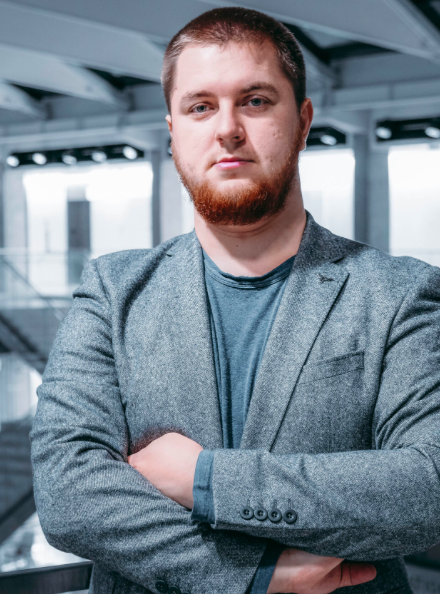 Dr. Dmitry Kireev is now a Postdoctoral Research Associate at the University of Texas at Austin working on application of 2D materials (graphene, MoS2, PtSe2 etc) into fields of bioelectronics, neuroprosthesis, and wearable electronics. He finished his PhD work at the Institute of Bioelectronics (ICS-8) of Forschungszentrum Julich, Germany, working on graphene-based devices for bioelectronics. He is a recipient of a prestigious EMM-NANO scholarship and performed his master study in KULeuven and Chalmers University with majors in nanoelectronics.
Dr. Dmitry Kireev is now a Postdoctoral Research Associate at the University of Texas at Austin working on application of 2D materials (graphene, MoS2, PtSe2 etc) into fields of bioelectronics, neuroprosthesis, and wearable electronics. He finished his PhD work at the Institute of Bioelectronics (ICS-8) of Forschungszentrum Julich, Germany, working on graphene-based devices for bioelectronics. He is a recipient of a prestigious EMM-NANO scholarship and performed his master study in KULeuven and Chalmers University with majors in nanoelectronics.
 Xintong Li graduated as a BS in July 2016 from the department of Physics, Peking University in Beijing, China. He joined the ECE department of UTA as a PhD student, co-advised by Prof. Jean Anne Incorvia and Prof. Deji Akinwande. His research focuses on 2D materials, magnetic materials and their device applications, including Black Phosphorous, WTe2, WSe2 and novel MTJ structures.
Xintong Li graduated as a BS in July 2016 from the department of Physics, Peking University in Beijing, China. He joined the ECE department of UTA as a PhD student, co-advised by Prof. Jean Anne Incorvia and Prof. Deji Akinwande. His research focuses on 2D materials, magnetic materials and their device applications, including Black Phosphorous, WTe2, WSe2 and novel MTJ structures.
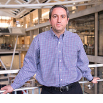 Emanuel Tutuc is a Professor and holds the B. N. Gafford Professorship in Electrical Engineering in the Electrical & Computer Engineering department at The University of Texas at Austin. Dr. Tutuc received his B.S. in Physics from Ecole Normale Supérieure, University of Paris in 1997, his M.S. in Electrical Engineering in 1999 and Ph.D. in Physics from Princeton University 2004. He held research positions at Princeton University and I.B.M. T.J. Watson Research Center from 2004 to 2006. He joined the faculty of The University of Texas at Austin within the Department of Electrical Engineering and the Microelectronics Research Center in the spring of 2007. His current research is centered on the electronic properties of quantum confined systems, novel semiconductor materials and devices, and chemical vapor deposition. Prof. Tutuc has received a DARPA Young Faculty Award in 2008, and a CAREER award from the National Science Foundation in 2009.
Emanuel Tutuc is a Professor and holds the B. N. Gafford Professorship in Electrical Engineering in the Electrical & Computer Engineering department at The University of Texas at Austin. Dr. Tutuc received his B.S. in Physics from Ecole Normale Supérieure, University of Paris in 1997, his M.S. in Electrical Engineering in 1999 and Ph.D. in Physics from Princeton University 2004. He held research positions at Princeton University and I.B.M. T.J. Watson Research Center from 2004 to 2006. He joined the faculty of The University of Texas at Austin within the Department of Electrical Engineering and the Microelectronics Research Center in the spring of 2007. His current research is centered on the electronic properties of quantum confined systems, novel semiconductor materials and devices, and chemical vapor deposition. Prof. Tutuc has received a DARPA Young Faculty Award in 2008, and a CAREER award from the National Science Foundation in 2009.
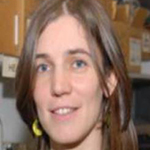 Maria José Oliveira graduated in Biology by the Faculty of Sciences-UPorto in 1996 and completed her PhD degree in Health and Medical Sciences at Ghent University Hospital (Belgium) in July 2004, under the supervision of Prof Marc Mareel. From 2004 to 2007, she performed her PostDoc at IPATIMUP, at the Cancer Genetics Group, under the supervision of Prof. Manuel Sobrinho-Simões and Prof. Raquel Seruca. Under the scope of Ciência2007, Maria J Oliveira initiated at INEB a new line of research, at Prof. Mário Barbosa’s Group. In 2012, she became an investigator FCT and established the Microenvironments in Cancer Cell Invasion Team. This Team demonstrated that human macrophages stimulate gastric and colorectal cancer cell invasion, proteolysis and migration.
Maria José Oliveira graduated in Biology by the Faculty of Sciences-UPorto in 1996 and completed her PhD degree in Health and Medical Sciences at Ghent University Hospital (Belgium) in July 2004, under the supervision of Prof Marc Mareel. From 2004 to 2007, she performed her PostDoc at IPATIMUP, at the Cancer Genetics Group, under the supervision of Prof. Manuel Sobrinho-Simões and Prof. Raquel Seruca. Under the scope of Ciência2007, Maria J Oliveira initiated at INEB a new line of research, at Prof. Mário Barbosa’s Group. In 2012, she became an investigator FCT and established the Microenvironments in Cancer Cell Invasion Team. This Team demonstrated that human macrophages stimulate gastric and colorectal cancer cell invasion, proteolysis and migration.
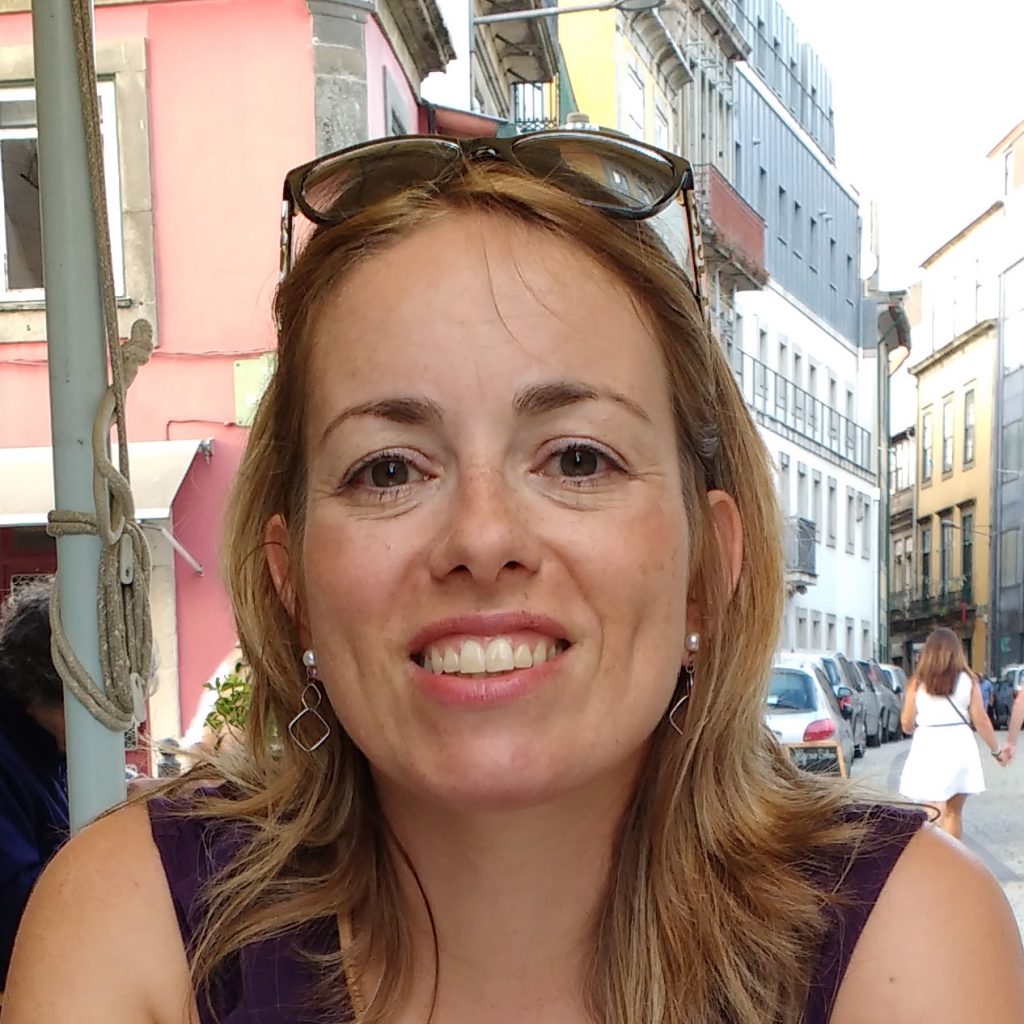 Susana G. Santos is an Assistant Investigator at i3S-INEB. She did her basic degree in Biology and masters in Molecular Microbiology, at the University of Aveiro, before moving to the University of Porto to do her PhD as part of the G.A.B.B.A. program. She performed her PhD studies in the area of immunology, particularly Major Histocompatibility Complex in T cell biology, in a collaboration between ICBAS and IBMC at the University of Porto, Portugal and the College of Life Sciences at the University of Dundee, in Scotland, UK. After her PhD she worked on the biology of dendritic cells in the Medical School, at St Andrews University and later became a Medical Research Council (MRC) Career Development Fellow, at the MRC-Protein Phosphorylation Unit, at the College of Life Sciences in Dundee, studying different signalling pathways in the immune system. At the end of 2008 she moved back to Porto to work at INEB, as a Ciência 2007 fellow. She has been working on the relation between inflammation and tissue regeneration. Her current research interests are in modulating the immune and inflammatory responses to promote tissue repair/regeneration, and investigating the role of extracellular vesicles (including exosomes) in cell crosstalk during inflammation resolution and tissue regeneration.
Susana G. Santos is an Assistant Investigator at i3S-INEB. She did her basic degree in Biology and masters in Molecular Microbiology, at the University of Aveiro, before moving to the University of Porto to do her PhD as part of the G.A.B.B.A. program. She performed her PhD studies in the area of immunology, particularly Major Histocompatibility Complex in T cell biology, in a collaboration between ICBAS and IBMC at the University of Porto, Portugal and the College of Life Sciences at the University of Dundee, in Scotland, UK. After her PhD she worked on the biology of dendritic cells in the Medical School, at St Andrews University and later became a Medical Research Council (MRC) Career Development Fellow, at the MRC-Protein Phosphorylation Unit, at the College of Life Sciences in Dundee, studying different signalling pathways in the immune system. At the end of 2008 she moved back to Porto to work at INEB, as a Ciência 2007 fellow. She has been working on the relation between inflammation and tissue regeneration. Her current research interests are in modulating the immune and inflammatory responses to promote tissue repair/regeneration, and investigating the role of extracellular vesicles (including exosomes) in cell crosstalk during inflammation resolution and tissue regeneration.
Important information:
– The registration period runs until January 25 unless all virtual seats have been taken earlier. Until January 4, registrations will be exclusively open to participants affiliated with Portuguese institutions or The University of Texas at Austin (UT Austin), including the UT MD Anderson Cancer Research Center. Participants from institutions located elsewhere may apply for the workshop from January 5 onwards, with virtual seats being given on a first-come first-serve basis.
– Participation is free of charge. Kindly note, however, that to put on this course, we mobilized several people and incurred expenses. Therefore, if you register at the event, we expect you to attend it. Kindly remember that when we assign a seat to someone, we are preventing other people from participating as vacancies are limited.
– To get the most out of this course, you are strongly encouraged to register for and attend all sessions to gain a complete understanding of the covered topics.
– Participants will be sent a link to the session 2 hours before the start time. If you do not receive it, please contact us at events@utaustinportugal.org
– Since this course is available globally, use this time zone converter to know what time the course is starting in your location: https://www.timeanddate.com/worldclock/converter.html
For any further queries, please send an email to events@utaustinportugal.org
(*) Dr. Artur Pinto’s contribution to this training relies on work financed by FEDER funds through the COMPETE 2020 – Operacional Programme for Competitiveness and Internationalisation (POCI), Portugal 2020, and by national funds (PIDDAC) through FCT/MCTES in the framework of the project POCI-01-0145-FEDER-031143, and Base Funding – UIDB/00511/2020 of the Laboratory for Process Engineering, Environment, Biotechnology and Energy – LEPABE. Artur Pinto thanks the Portuguese Foundation for Science and Technology (FCT) for the financial support of his work contract through the Scientific Employment Stimulus – Individual Call – [CEECIND/03908/2017].

